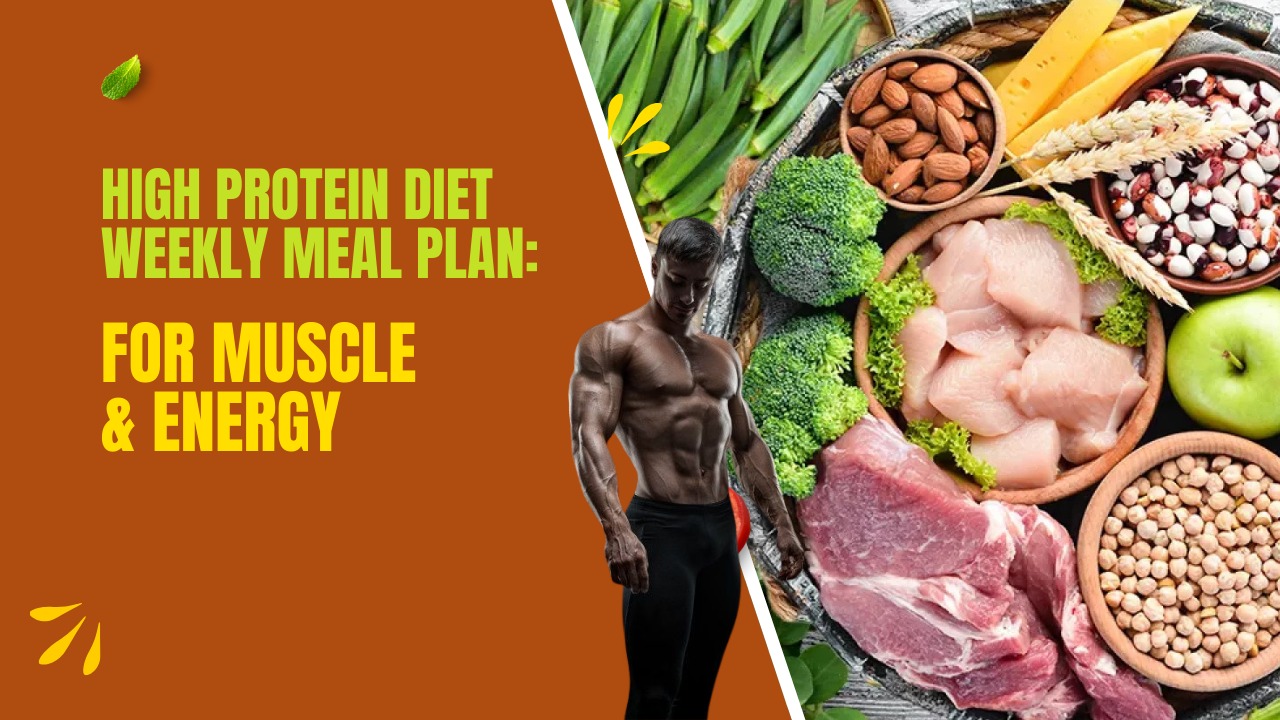High protein diet weekly meal plan has become a cornerstone in today’s health-conscious world for those aiming to improve fitness, lose weight, or build muscle. Protein, often called the “building block” of the body, is vital for muscle repair, hormone production, and overall body function. Whether you’re an athlete, fitness enthusiast, or someone maintaining a healthy lifestyle, knowing how to structure a protein-rich meal plan is essential.
A high protein diet weekly meal plan focuses on including lean meats, fish, eggs, dairy, legumes, and plant-based proteins in balanced meals. Proper distribution of protein throughout the day supports sustained energy, improves metabolism, and helps control hunger, making it easier to achieve fitness goals.
Meal prepping, incorporating protein-rich snacks, and adjusting portions based on activity levels make a high protein diet weekly meal plan practical, sustainable, and effective for long-term health and wellness.
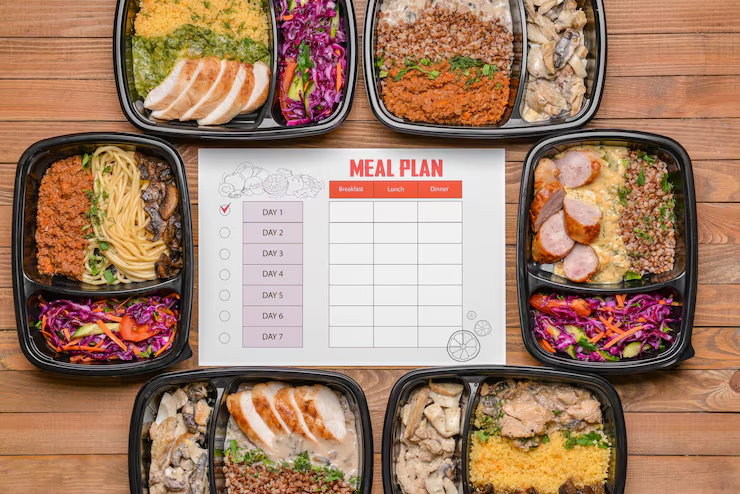
What is a High Protein Diet ?
A high protein diet emphasizes the intake of protein-rich foods, usually comprising 25-35% or more of your daily calorie intake from protein sources. Protein is made up of amino acids, which are vital for repairing tissues, producing enzymes and hormones, and supporting immune function. This diet is especially popular for weight loss and muscle gain due to protein’s role in satiety and muscle protein synthesis.
Protein can be sourced from both animal and plant-based foods, and an effective high protein diet weekly meal plan incorporates a variety of these to meet nutritional needs while preventing diet monotony.
Why Follow a High Protein Diet Weekly Meal Plan ?
Many benefits come with maintaining a structured high protein diet weekly meal plan:
Supports muscle growth and repair
Promotes fat loss by increasing metabolism
Keeps you feeling full longer, reducing overeating
Improves bone health
Helps maintain healthy skin, hair, and nails
Planning your meals on a weekly basis ensures you consistently meet your protein goals, avoids last-minute unhealthy choices, and helps in managing grocery shopping efficiently.
How It Works in a High Protein Diet Weekly Meal Plan
A high protein diet weekly meal plan works by providing the body with sufficient protein to support muscle growth, repair tissues, and maintain overall health. Protein-rich foods trigger satiety, helping control hunger and reduce unhealthy snacking. By including lean meats, fish, eggs, dairy, legumes, and plant-based proteins, the body receives essential amino acids needed for optimal functioning.
The plan distributes protein intake evenly across meals, ensuring a steady supply for energy and recovery. Combining protein with complex carbohydrates and healthy fats enhances nutrient absorption and stabilizes blood sugar levels. This structured approach makes a high protein diet weekly meal plan effective for maintaining lean muscle mass, boosting metabolism, and supporting weight management.
Meal prepping, including protein-rich snacks, and adjusting portions according to activity levels ensures consistency. Following a high protein diet weekly meal plan helps achieve fitness and health goals in a sustainable and practical way.
Top Tips for an Effective High Protein Diet Weekly Meal Plan
Prioritize Lean Protein Sources
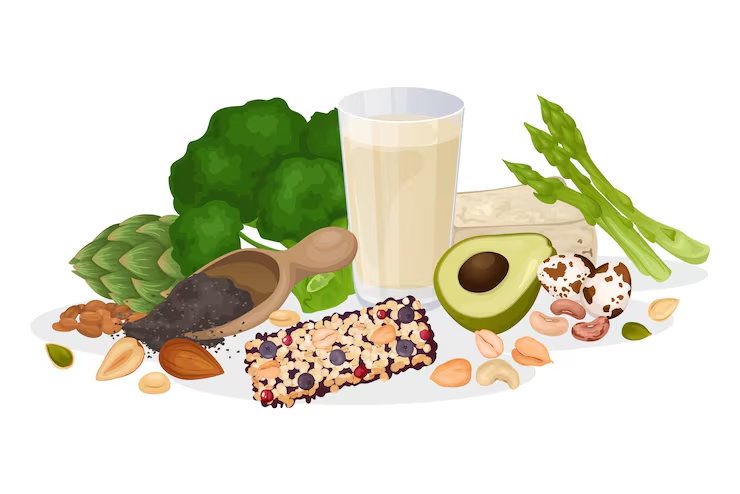
A high protein diet weekly meal plan focuses on incorporating lean protein sources to support muscle growth and overall health. Lean meats like chicken, turkey, and fish provide essential amino acids without excessive saturated fats. Including plant-based proteins such as lentils, chickpeas, and tofu can also diversify nutrient intake while keeping calories in check.
For effective results, spread protein intake evenly across meals. Breakfast options like Greek yogurt or eggs, lunch with grilled chicken or quinoa, and dinner featuring fish or legumes ensure your body receives a steady supply of protein throughout the day. This approach enhances muscle recovery and boosts metabolism, which is central to a high protein diet weekly meal plan.
Snacks also play a role in meeting protein goals. Nuts, seeds, or protein shakes are convenient choices that complement main meals. Prioritizing lean proteins makes the high protein diet weekly meal plan both sustainable and effective for long-term health.
Benefits: Lean proteins are low in fat but high in essential amino acids. They help build muscle without adding unnecessary calories or saturated fats.
Ingredients to Include:
Skinless chicken breast
Turkey
Egg whites
Fish (salmon, tuna, cod)
Low-fat Greek yogurt
Legumes (lentils, chickpeas)
Tip: Include a lean protein source in every meal to keep your protein intake consistent throughout the day.
Incorporate Plant-Based Proteins
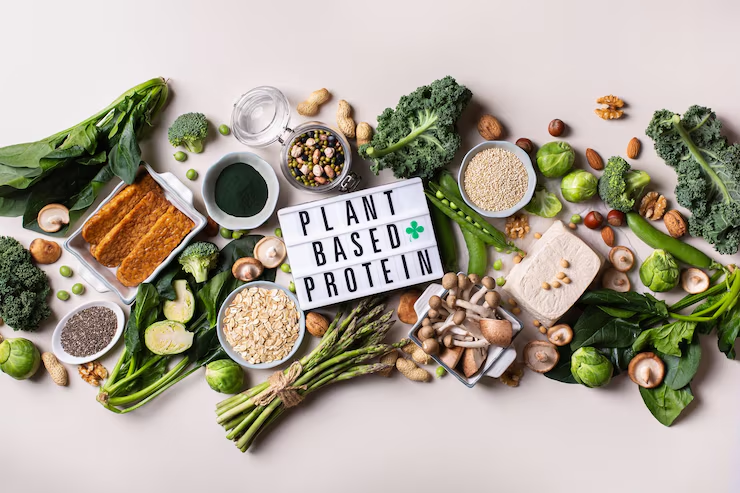
A high protein diet weekly meal plan doesn’t have to rely solely on animal products. Plant-based proteins such as lentils, chickpeas, beans, tofu, tempeh, and quinoa provide essential amino acids while being rich in fiber and other nutrients. Incorporating these foods into your meals can support muscle growth, improve digestion, and promote heart health.
Breakfast can include a tofu scramble or a smoothie with protein-rich plant powders. Lunch and dinner options might feature lentil soups, chickpea salads, or stir-fried vegetables with tempeh. By balancing these with whole grains and healthy fats, a high protein diet weekly meal plan ensures you receive a variety of nutrients without excessive calories.
Snacks like roasted chickpeas, edamame, or nut butter on whole-grain toast help meet daily protein targets. Regularly including plant-based proteins makes the high protein diet weekly meal plan sustainable, nutrient-dense, and suitable for anyone looking to maintain lean muscle and overall health.
Benefits: Plant proteins are rich in fiber, antioxidants, and micronutrients, which improve digestion and reduce inflammation.
Ingredients to Include:
Quinoa
Tofu and tempeh
Beans and lentils
Edamame
Nuts and seeds
Tip: Mixing plant and animal proteins ensures a complete amino acid profile.
Plan Balanced Meals with Protein, Carbs, and Fats
A successful high protein diet weekly meal plan emphasizes not just protein but also the right balance of carbohydrates and healthy fats. Combining these macronutrients in each meal helps maintain energy levels, support muscle growth, and improve overall metabolism. For example, pairing grilled chicken with quinoa and avocado ensures your body gets protein, complex carbs, and healthy fats in one plate.
Breakfast, lunch, and dinner should each include a portion of lean protein, a source of complex carbohydrates like brown rice or oats, and healthy fats from nuts, seeds, or olive oil. This approach stabilizes blood sugar, reduces cravings, and enhances workout performance, making your high protein diet weekly meal plan more effective and sustainable over time.
Even snacks can be balanced by combining protein with carbs and fats. Greek yogurt with berries and almonds or hummus with whole-grain crackers provides a nutrient-rich option. Planning meals this way ensures the high protein diet weekly meal plan is practical, satisfying, and health-focused.
Benefits: Combining macronutrients ensures stable blood sugar, sustained energy, and nutrient absorption.
Ingredients to Include:
Complex carbs: brown rice, sweet potatoes, oats
Healthy fats: avocado, olive oil, nuts
Protein sources from tip 1 and 2
Tip: Use the plate method—half veggies, one quarter protein, one quarter carbs—to create balanced meals.
Use Meal Prep to Stay Consistent
Consistency is key when following a high protein diet weekly meal plan, and meal prepping can make it much easier. By preparing meals in advance, you ensure that healthy, protein-rich options are always available, reducing the temptation to reach for processed or low-protein foods. Planning ahead saves time during busy weekdays and helps you stick to your nutrition goals.
Start by cooking batches of lean proteins like chicken, fish, or tofu, and pair them with complex carbohydrates and vegetables. Portion meals into containers for easy grab-and-go options. This method keeps your high protein diet weekly meal plan organized and makes it easier to monitor your protein intake throughout the day.
Snacks can also be prepped in advance, such as boiled eggs, roasted chickpeas, or protein bars. With regular meal prep, following a high protein diet weekly meal plan becomes simpler, stress-free, and highly effective for achieving fitness and health goals.
Benefits: Prepping meals ahead saves time, reduces stress, and prevents poor food choices when hungry.
Ingredients to Prepare:
Cook batches of chicken, rice, and steamed veggies
Pre-portion Greek yogurt with nuts
Make protein-rich smoothies with whey or plant protein powder
Tip: Dedicate a day to meal prep for the week to ensure you stick to your high protein diet weekly meal plan.
Include Protein in Every Snack
A high protein diet weekly meal plan is most effective when protein is included not only in main meals but also in snacks. Protein-rich snacks help maintain energy, curb hunger, and support muscle recovery throughout the day. Simple options like Greek yogurt, nuts, cheese, or protein bars can easily be incorporated between meals.
By planning protein-based snacks in advance, you avoid unhealthy choices like sugary treats or fried foods. Pairing protein with a small portion of complex carbs or healthy fats, such as apple slices with peanut butter or hummus with veggies, keeps your body fueled and satisfied. This approach strengthens the impact of a high protein diet weekly meal plan by keeping your metabolism active and energy levels stable.
Regularly including protein in snacks also supports lean muscle development and weight management. With thoughtful choices, your high protein diet weekly meal plan becomes practical, balanced, and highly effective for long-term results.
Benefits: Protein snacks prevent mid-day hunger and muscle breakdown.
Ingredients to Include:
Cottage cheese with fruit
Hard-boiled eggs
Protein bars or shakes
Nuts and seeds mix
Tip: Keep protein snacks handy at work or on the go.
Experiment with Protein-Rich Recipes
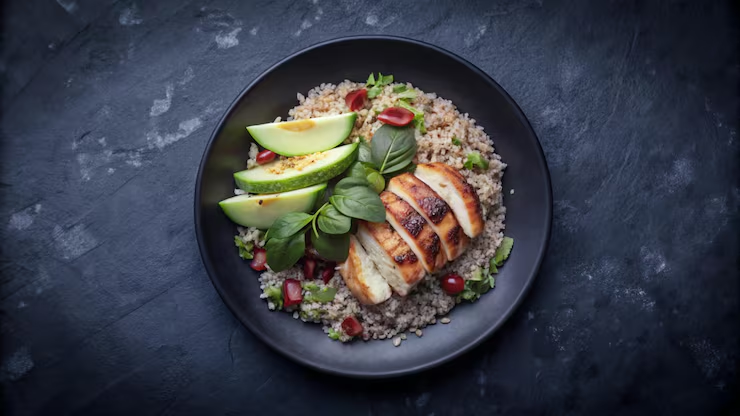
A high protein diet weekly meal plan becomes more enjoyable and sustainable when you experiment with protein-rich recipes. Trying new dishes keeps meals exciting and helps you stay committed to your nutrition goals. Incorporating a variety of protein sources like chicken, fish, eggs, tofu, legumes, and dairy ensures your body receives all essential amino acids.
Breakfast can include protein-packed smoothies, omelets, or overnight oats with Greek yogurt. Lunch and dinner recipes might feature stir-fries with tofu, quinoa bowls, or grilled fish with vegetables. Experimenting with herbs, spices, and healthy sauces adds flavor without extra calories, making the high protein diet weekly meal plan both nutritious and delicious.
Even snacks can be creative, like roasted chickpeas, protein muffins, or homemade energy bites. Exploring new recipes keeps your meals satisfying and prevents monotony. With diverse and flavorful options, following a high protein diet weekly meal plan becomes a fun, effective, and long-term lifestyle choice.
Benefits: Variety keeps your diet enjoyable and sustainable.
Ideas to Try:
Grilled salmon with quinoa salad
Lentil and vegetable stew
Egg white omelet with spinach and mushrooms
Tofu stir-fry with broccoli
Tip: Use herbs and spices to enhance flavor without extra calories.
Adjust Protein Intake According to Activity Levels
A high protein diet weekly meal plan is most effective when protein intake is tailored to your activity levels. Active individuals or those engaging in strength training may require more protein to support muscle growth and recovery, while those with a sedentary lifestyle may need slightly less. Adjusting portions ensures your body receives the right amount without overconsumption.
For moderate activity, including protein in each meal such as eggs for breakfast, lean meat or tofu for lunch, and fish or legumes for dinner helps maintain energy and promote muscle repair. On high-activity days, adding protein-rich snacks like Greek yogurt, nuts, or protein shakes supports performance and recovery, making the high protein diet weekly meal plan adaptable to your needs.
Monitoring your activity and protein intake also prevents unnecessary calorie surplus and promotes optimal body composition. By customizing your meals, a high protein diet weekly meal plan becomes flexible, effective, and tailored for long-term health and fitness goals.
Benefits: Active individuals need more protein for muscle repair and recovery.
General Guidelines:
Sedentary adults: 0.8g protein/kg body weight
Recreational athletes: 1.2-1.4g/kg
Strength trainers: 1.6-2.0g/kg
Tip: Track your protein intake using apps or journals to meet your specific needs.
Stay Hydrated and Support Kidney Health
A high protein diet weekly meal plan can benefit your body when paired with proper hydration. Drinking enough water helps your kidneys process protein efficiently and supports overall metabolic functions. Staying hydrated also aids digestion, prevents fatigue, and helps maintain optimal energy levels throughout the day.
Including water-rich foods such as fruits, vegetables, and soups in your meals further complements a high protein diet weekly meal plan. Herbal teas and infused water are additional ways to increase fluid intake without adding extra calories. Proper hydration ensures that protein is metabolized effectively and reduces stress on the kidneys, supporting long-term health.
It’s important to balance protein intake with sufficient fluids, especially if following a high-protein regimen consistently. By prioritizing hydration, a high protein diet weekly meal plan becomes safer, more effective, and supportive of both kidney health and overall wellness.
Benefits: High protein intake increases nitrogen waste, so hydration is key to kidney function.
Recommendations:
Drink 2-3 liters of water daily
Include hydrating foods like cucumbers, watermelon, and leafy greens
Tip: Avoid excessive protein supplements without medical advice.
Benefits of Following a High Protein Diet Weekly Meal Plan
Improved Muscle Mass and Strength: Protein provides the amino acids necessary for muscle repair and growth, especially important for those lifting weights or doing resistance training.
Enhanced Fat Loss: Protein increases metabolism through the thermic effect of food (TEF) and promotes fat burning by preserving lean muscle mass during calorie deficits.
Satiety and Appetite Control: Protein slows digestion and increases the release of satiety hormones, which reduces overeating and snacking on unhealthy foods.
Blood Sugar Regulation: Protein can moderate blood sugar spikes when consumed with carbohydrates, helping manage diabetes or insulin sensitivity.
Nutrient Density: High protein foods often contain other essential nutrients like iron, zinc, and B vitamins that support overall health.
Conclusion
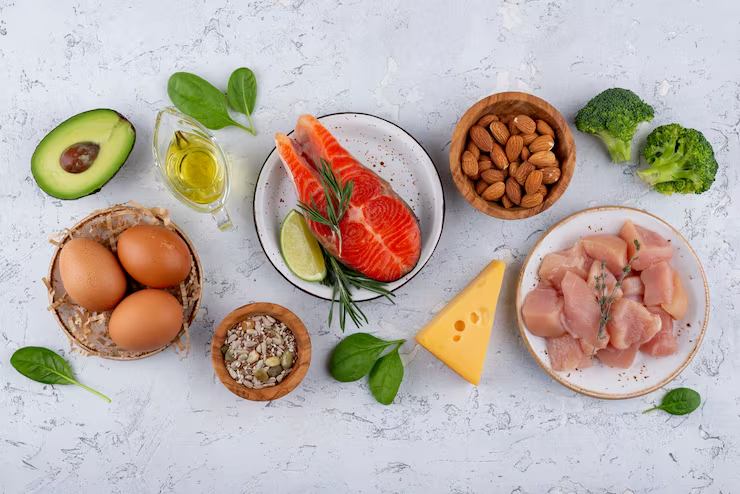
Adopting a high protein diet weekly meal plan is a powerful strategy to enhance muscle growth, promote fat loss, and improve overall health. Protein’s unique role in satiety and metabolism makes it a critical nutrient for anyone looking to optimize their diet for fitness or weight management. By incorporating diverse protein sources—from lean meats to plant-based options—and balancing meals with healthy carbs and fats, you ensure sustained energy and nutrient intake.
Meal planning and prep are vital components of sticking to a high protein diet weekly meal plan, helping you avoid unhealthy choices and save time. Remember to adjust your protein intake based on activity levels and stay hydrated to support kidney function. With the top 8 tips shared here and a sample weekly plan to guide you, achieving your health and fitness goals becomes more accessible and enjoyable.
The high protein diet weekly meal plan not only supports physical performance but also contributes to long-term wellness. Start today by choosing the right ingredients, experimenting with recipes, and making protein a priority in your daily meals!
FAQs
Q1. How much protein should I eat daily on a high protein diet ?
Daily protein needs vary by individual factors such as age, activity level, and goals. Generally, 1.2 to 2.0 grams of protein per kilogram of body weight is recommended for those on a high protein diet weekly meal plan.
Q2. Can I eat too much protein ?
Excessive protein intake can strain the kidneys over time, especially in people with pre-existing kidney issues. It’s best to stick within recommended ranges and consult a healthcare provider for personalized advice.
Q3. Are plant-based proteins as effective as animal proteins ?
Plant proteins can be equally effective when combined properly to ensure all essential amino acids are consumed. Including a variety of plant sources or supplementing with some animal protein can help achieve this.
Q4. Can a high protein diet help with weight loss ?
Yes, protein increases feelings of fullness and boosts metabolism, which can aid in weight loss. It also helps preserve lean muscle during calorie restriction.
Q5. What are the best snacks to include in a high protein diet ?
Healthy, protein-rich snacks include Greek yogurt, cottage cheese, hard-boiled eggs, nuts, seeds, protein bars, and shakes. These options help maintain energy levels and reduce hunger between meals.


